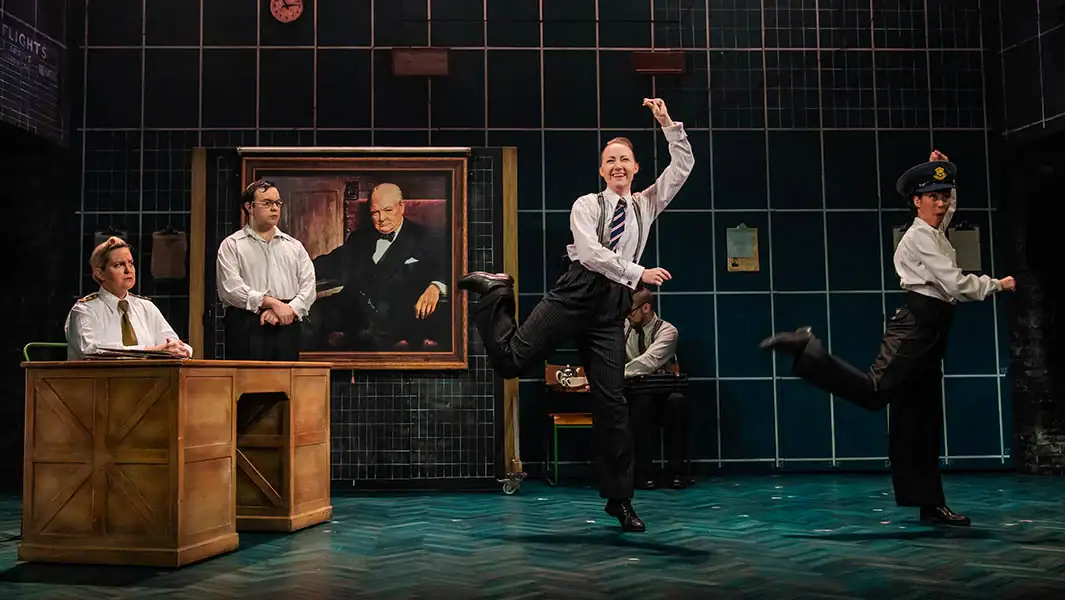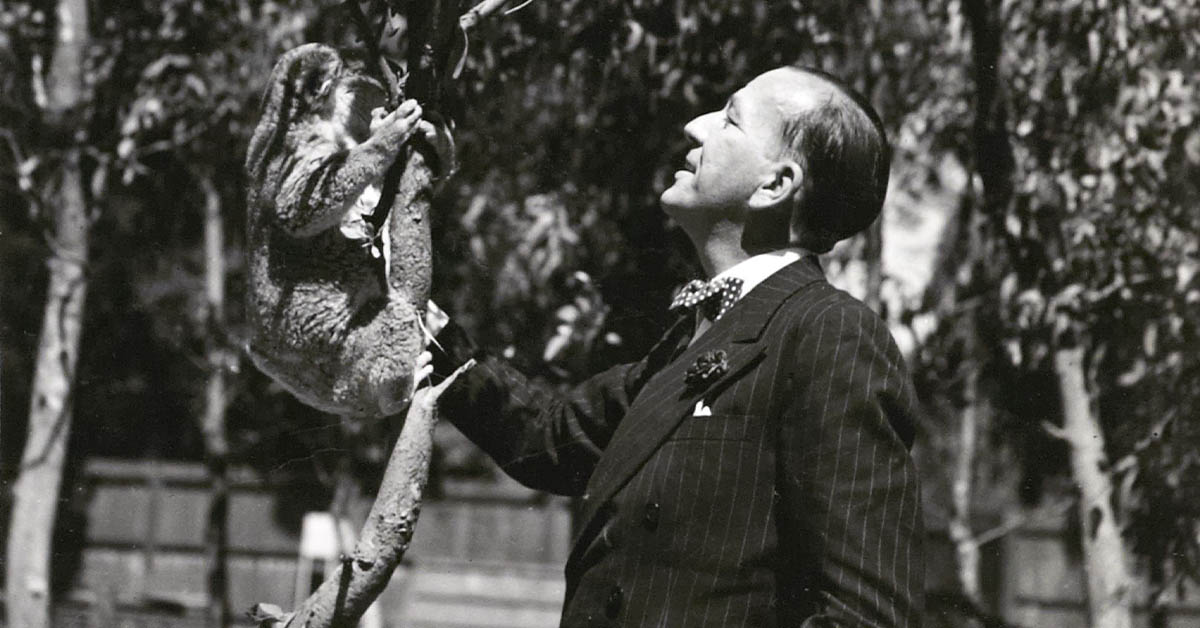
Coward’s reputation as a man of refined taste was bolstered, in part, by his extensive travel around the globe.
At Concord Theatricals, as we celebrate the 125th anniversary of Coward’s birth, we wonder how his boundless wayfaring led to the creation of so many celebrated stage classics.
Here, then, is a look at the travels of Noël Coward, with an eye towards the great work he wrote for the theatre. By no means extensive, this overview of the playwright’s travels may shed some light on the inspiration for many of his best-known stage works.
1899-1920: Teddington/London
Noël Coward was born in 1899 in Teddington, Middlesex, to a working-class family for whom he quickly became the primary breadwinner. Making his professional stage debut as Prince Mussel in The Goldfish at the age of 12, young Noël quickly found success as an actor in London theatre. By 1920, at the age of 20, he was starring in his own play, the light comedy I’ll Leave It to You.
But London wasn’t enough for him, and he soon took the first of many trips across the Atlantic.
1921-24: New York/London/Davos/Berlin
On June 4, 1921, Coward sailed to New York City, where he stayed with friends, including the actress Laurette Taylor and her husband Hartley Manners. Though he didn’t find immediate success in New York, he did fall in love with the city and its thriving theatre scene. He returned to England in 1922.
In December 1922, he joined his friend Ned, who was recovering from tuberculosis, in Davos, Switzerland. Then he set off to Berlin for a brief trip to celebrate his birthday.
In 1923, he began work on a play that would prove to be his first critical and financial success, The Vortex.
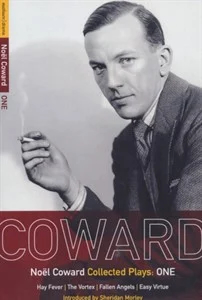 The Vortex (US/UK)
The Vortex (US/UK)
(Full-Length Play, Drama / 3w, 7m)
Emotional blackmail, drug abuse and shattered relationships are minutely observed in this disturbing, early piece about a sexually obsessed woman and her cocaine-addicted son. Considered shocking at the time for its frank depiction of sexuality and drug abuse, the play was hugely successful, especially among younger theatregoers. The Vortex premiered in Hampstead on November 25, 1924, and on Broadway at Henry Miller’s Theatre on September 16, 1925.
1924-25: New York/Surrey/London
In February 1924, Coward returned to NYC to see André Charlot’s Revue of 1924, which marked the American debut of songs Coward had written for his immensely successful British revue, London Calling.
He then returned to Surrey, where he wrote a three-act comedy, which he eventually called Hay Fever.
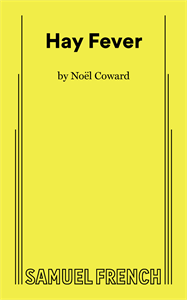 Hay Fever (US/UK)
Hay Fever (US/UK)
(Full-Length Play, Comedy / 5w, 4m)
Hoping for a quiet weekend in the country with some guests, David Bliss, a novelist, and his wife, Judith, a retired actress, find quiet an impossible dream when their high-spirited children, Simon and Sorel, appear with guests of their own. A houseful of drama waits to be ignited as misunderstandings and tempers flare, and the “quiet weekend” comes to an exhausting and hilarious finale.
The same year, Coward’s second scandalous play, Fallen Angels (which dared to show two women getting drunk!), opened at the Globe.
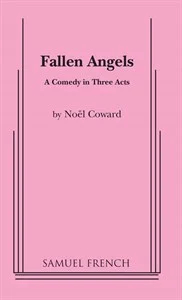 Fallen Angels (US/UK)
Fallen Angels (US/UK)
(Full-Length Play, Comedy / 3w, 3m)
Best friends now happily married to others, Julia and Jane both once counted the dashing Frenchman Maurice as their lover. Guess who’s back in town and requesting the pleasure of the ladies’ company? Coward at his inimitable best, the story is a champagne cocktail of wit and charm.
1925-28: London/New York/Honolulu/Kent
By June 1925, Coward had four shows running in the West End: The Vortex, Fallen Angels, Hay Fever and On with the Dance. He was acting and writing at a frantic pace, which finally caught up with him when he collapsed while starring in The Constant Nymph. Against medical advice, he sailed to New York to start rehearsals for his play This Was a Man. When he again became overwhelmed and depressed, he finally gave in, deciding to travel to Japan to recuperate. But when his ship docked in Honolulu, Coward was so run down that he chose to remain in Hawaii for a month before returning to NYC.
In 1926, Coward bought Goldenhurst Farm, a country home in Kent. For the next few years, he continued to perform and write in the US and UK, touring the USA in This Year of Grace! and writing and directing the musical Bitter Sweet in London & New York.
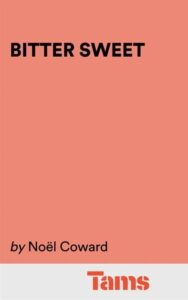 Bitter Sweet (US/UK)
Bitter Sweet (US/UK)
(Full-Length Musical, Drama / 4w, 2m)
Set in 19th- and early 20th-century England and Austria-Hungary, Coward’s operetta centers on a young woman’s elopement with her music teacher. Songs from the score include “If Love Were All,” “The Call of Life,” “If You Could Only Come with Me,” “I’ll See You Again” and “Green Carnation.”

Noël Coward in flying gear during his 1930 or 1935 tour of Asia (Noël Coward Archive Trust)
1929-30: Asia
In November 1929, Coward set off with his friend and one-time lover Jeffery Amherst on a trip to East Asia. Noël and Jeffery explored Japan, Korea, China, Hong Kong, Vietnam and Cambodia. In just four days in January 1930, while recovering from influenza in Shanghai, Coward wrote – in longhand – the comic masterpiece Private Lives.
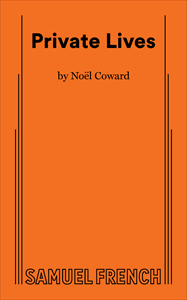 Private Lives (US/UK)
Private Lives (US/UK)
(Full-Length Play, Comedy / 3w, 2m)
In Coward’s sparkling, sophisticated comedy, Elyot and Amanda, once married and now honeymooning with new spouses at the same hotel, meet by chance, reignite the old spark and impulsively elope. After days of being reunited, they again find their fiery romance alternating between passions of love and anger. Private Lives premiered on August 18, 1930, at the King’s Theatre in Edinburgh, directed by and starring Coward, alongside his dear friend Gertrude Lawrence, along with Laurence Olivier and Adrianne Allen. The play debuted on Broadway at the Times Square Theatre on January 27, 1931, with Coward, Lawrence and Olivier reprising their roles and Jill Esmond, who had married Olivier a few months earlier, as Sibyl.
1931-34: South America/New York
In 1931, to escape the attention generated by the massive success of Private Lives, Coward set off on a trip to Central and South America, including stops in Panama, Brazil and Chile. While sailing back to Los Angeles from Colón, Panama, he wrote a few new songs, including “Mad about the Boy” and “The Party’s Over Now.” He also wrote an entire play: Design for Living.
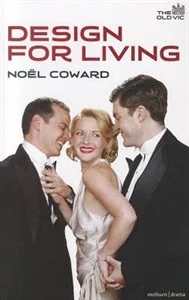 Design for Living (US/UK)
Design for Living (US/UK)
(Full-Length Play, Comedy / 4w, 6m)
In this classic menage a trois, Gilda and Otto are living a bohemian lifestyle, she as a dilletante, he as a painter. When Otto’s old friend, a successful playwright named Leo, comes to visit, he and Gilda begin an affair, setting off a series of events that shatter the conventions of the era. Coward directed the New York production of the play, starring in the role of Leo.
1934-37: New York/London/Mediterranean
In the mid and late 1930s, Coward continued to work in New York and London, with occasional jaunts elsewhere. (A 1934 Mediterranean cruise was interrupted by a pair of hurricanes, leaving Coward and his travel companion briefly stranded in Corsica.) Tonight at 8:30, a cycle of 10 one-act plays in which he co-starred opposite Gertrude Lawrence, played in London in 1936 and in New York from 1936 to 1937.
1938-39: Middle East and North Africa/Eastern Europe/Soviet Union/Western Europe
As the threat of European war grew, Coward became increasingly involved in his country’s defense. In 1938, he began traveling with the navy in the Mediterranean fleet, visiting Egypt, Jerusalem and Malta. For theatre and for country, he traveled to Eastern Europe, Scandinavia and the Soviet Union.
After the United Kingdom declared war on Germany in September 1939, Coward officially joined the war effort, working primarily from Paris and London as part of the UK’s propaganda organization, known as Department EH.
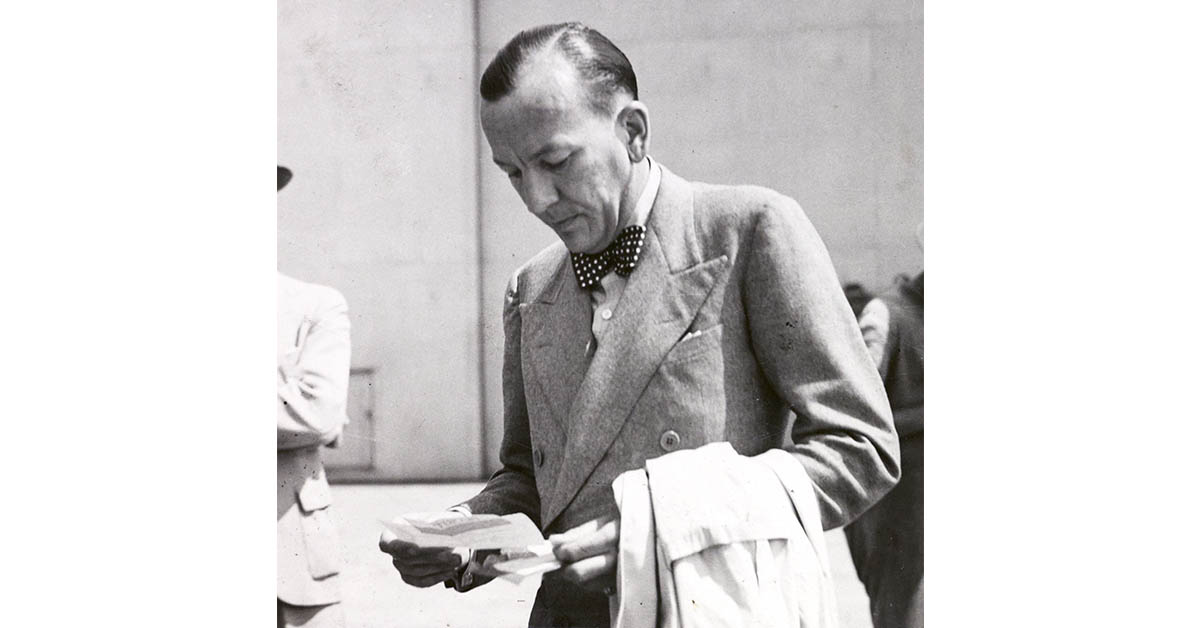
Noël Coward arriving at an airport in 1940 in Australia (Noël Coward Archive Trust)
1940-42: USA/Australia/New Zealand
In 1940, after returning to the US to do propaganda work for the Ministry of Information, Coward went on a propaganda tour of Australia and New Zealand, entertaining troops and raising funds for war charities.
In 1941, Coward promised himself that he’d get back to writing, and his resolution proved fruitful. Though Blithe Spirit, a comedy about death, would not have seemed the ideal entertainment for a country at war, the play became a huge hit. Early audiences stepped over rubble to get into the theatre, and they continued to come for years; Blithe Spirit’s London run outlasted the war.
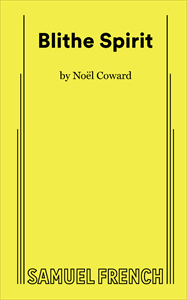 Blithe Spirit (US/UK)
Blithe Spirit (US/UK)
(Full-Length Play, Comedy / 5w, 2m)
This much-revived classic concerns fussy, cantankerous novelist Charles Condomine, who has remarried but finds himself haunted (literally) by the ghost of his late first wife, Elvira. Clever, insistent and well aware of Charles’ shortcomings, Elvira is called up by a visiting “happy medium,” the eccentric and flighty Madame Arcati. As personalities clash, Charles’ current wife, Ruth, is accidentally killed. She “passes over” and joins Elvira in haunting the hapless Charles into perpetuity.
Blithe Spirit premiered on Broadway at the Morosco Theatre on November 5, 1941. A year later, a script Coward had written in 1939 finally saw the light of day when Present Laughter premiered in Blackpool on September 20, 1942, kicking off a 25-week tour. Presented in rep with Blithe Spirit and This Happy Breed, the play was a rousing success.
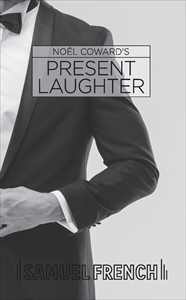 Present Laughter (US/UK)
Present Laughter (US/UK)
(Full-Length Play, Comedy / 6w, 5m)
At the center of his own universe sits matinee idol Garry Essendine: suave, hedonistic and too old, says his wife, to be having numerous affairs. His line in harmless, infatuated debutantes is largely tolerated but playing closer to home is not. Just before he escapes on tour to Africa the full extent of his misdemeanors is discovered. And all hell breaks loose.
1943-45: Middle East/Africa/Asia
During the war, Coward toured the Middle East, Africa and Asia, entertaining the Allied troops in South Africa, Burma, India and Ceylon, among other locations. He led troop concerts in France and presented a ‘Stage Door Canteen Concert’ in London.
Brief Encounter, David Lean’s immensely successful film adaptation of Coward’s one-act play Still Life, premiered in 1945, and was an instant smash. Decades later, in 2008, the heartbreaking romance was adapted for the stage by playwright Emma Rice.
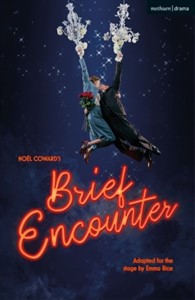 Brief Encounter by Noël Coward and Emma Rice (US/UK)
Brief Encounter by Noël Coward and Emma Rice (US/UK)
(Full-Length Play, Drama / 3w, 7m)
Your heart dances. The world seems strange and new. You want to laugh and skip and fall forever… You are in love. You are in love with the wrong person. Laura, the respectable suburban wife, and Alec, the idealistic, married doctor, meet in a station buffet and fall passionately in love, but are doomed never to find fulfillment.
1946-51: US/UK/Jamaica
Coward returned to New York for the successful Broadway production of Present Laughter, which premiered at the Plymouth Theatre in October 1946. In 1948, he briefly replaced Graham Payn in the American tour of Tonight at 8.30, his last stage appearance with Gertrude Lawrence. He later played Max Aramont in Joyeux Chagrins, the French version of Present Laughter. Meanwhile, he had a house built at Blue Harbour, Jamaica. This Jamaican getaway would eventually become his primary residence.
In 1951, Coward performed a one-night concert at Theatre Royal, followed by a season at Café de Paris, marking the start of his new career as a leading cabaret entertainer.
Though his postwar plays were less successful than hoped, Coward restored his reputation as a playwright with Relative Values, which he wrote and directed in London in 1951.
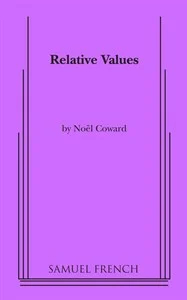 Relative Values (US/UK)
Relative Values (US/UK)
(Full-Length Play, Comedy / 5w, 5m)
In this delightful comedy of manners, an American movie actress is preparing to wed a British earl. Smack in the middle of a sedate dinner in the English mansion comes Miranda’s former flame and current Hollywood sensation, Don. The wary and wise Countess, knowing that the actress is no match for her son, invites Don to stay for the evening. Comic complications escalate, leading to a satisfying conclusion proving that the ties that bind are royal blue.
1952-59: London/Las Vegas/Hollywood/Bermuda/Switzerland/Cuba
Sadly, Coward endured two great losses over the next two years: his dear friend Gertrude Lawrence died in 1952, and his mother, Violet Agnes Coward, passed away in 1954.
In his mid-50s, Coward entered a new phase in his performing career. In 1955, he opened a critically acclaimed season as a cabaret entertainer at the Desert Inn in Las Vegas. He also played Hesketh-Baggott in the Oscar-winning film adaptation of Around the World in Eighty Days, for which he wrote much of his own dialogue. Soon thereafter, he appeared in the films Our Man in Havana and Surprise Package.
In 1956, for tax reasons, Coward took up residency in Bermuda, though he sold his Bermuda home just two years later to relocate to Switzerland.
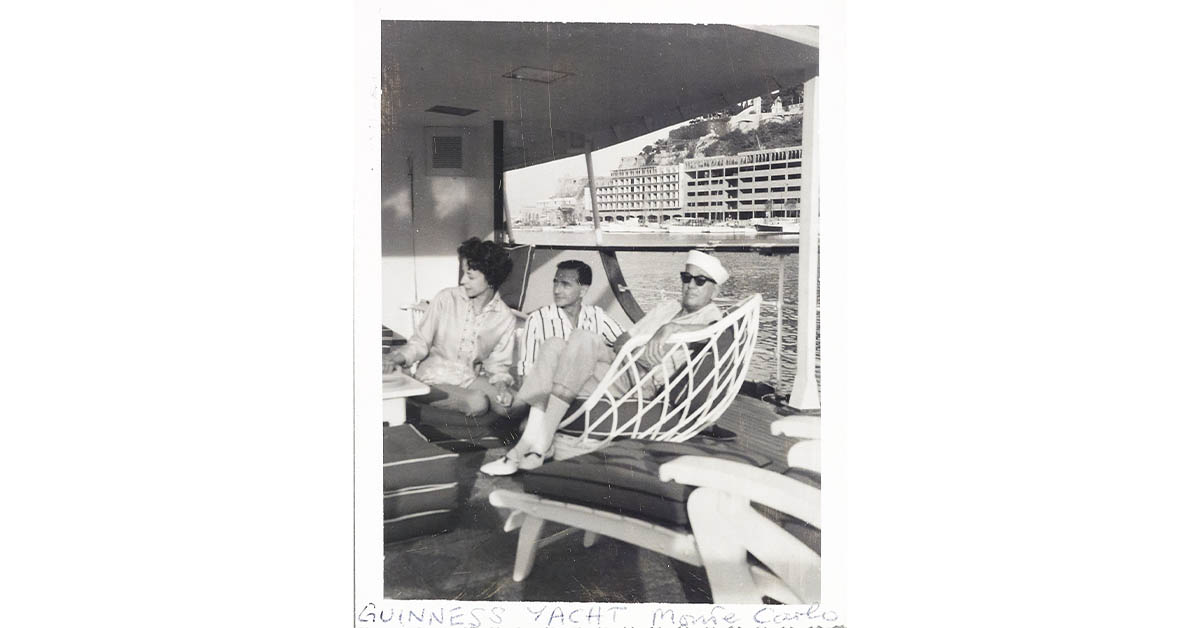
Noël Coward with Gloria Guinness and Cole Lesley on the Yacht Sarina in Monte Carlo, c. 1960 (Noël Coward Archive Trust)
1960-63: Eire/UK/New York/Switzerland/Jamaica
In the early 1960s, Coward wrote two wonderful vehicles for actresses: the comedy Waiting in the Wings, produced in Eire and the UK, and the musical Sail Away, which opened on Broadway starring Elaine Stritch.
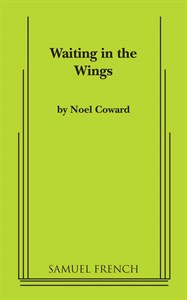 1960 – Waiting in the Wings (US/UK)
1960 – Waiting in the Wings (US/UK)
(Full-Length Play, Comedy / 14w, 4m)
Coward’s tribute to theatre is set in a retirement home for actresses, all former stars. Jealousies abound, especially between Lotta and another actress who was also married to her former husband. A tragedy brings them to their senses, and a new solarium brings out everyone’s good nature. In the end, Lotta chooses to stay with her old friends rather than go live with her son.
That same year, Coward’s novel Pomp and Circumstance was published in London and New York.
 1961 – Sail Away (US/UK)
1961 – Sail Away (US/UK)
(Full-Length Musical, Comedy / 8w, 9m +Ensemble)
This comic romance set aboard a cruise ship has all the classic wit and charm of Broadway’s golden era. Recent divorcée Mimi Paragon is stuck serving tourists as one of the ship’s hostesses when she is drawn to the much younger and strikingly handsome Johnny Van Mier. Complicating their relationship are several eccentric and hilarious cruise ship characters – including the cynical and quirky Sweeneys, Johnny’s dominating mother, the wacky novelist Spencer Bollard and her wide-eyed niece, Nancy.
Sail Away premiered on Broadway at the Broadhurst Theatre on October 3, 1961. Directed by Noël Coward, the production starred Elaine Stritch and featured Charles Braswell, Grover Dale, Margalo Gillmore, Patricia Harty and James Hurst. In June 1962, Sail Away premiered at the Savoy Theatre in London.
1964-1973: New York/London/Switzerland/Jamaica
Coward continued to reside alternately in Jamaica and Switzerland, with frequent jaunts to London and New York. His final musical venture was a musical adaptation of his hit Blithe Spirit, which he directed on Broadway and in the West End.
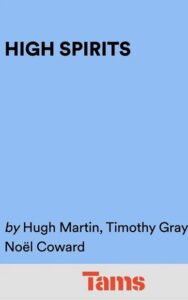 1964 – High Spirits by Hugh Martin and Timothy Gray, based on Blithe Spirit by Noël Coward (US/UK)
1964 – High Spirits by Hugh Martin and Timothy Gray, based on Blithe Spirit by Noël Coward (US/UK)
(Full-Length Musical, Comedy / 3w, 1m)
Based on the Blithe Spirit, High Spirits is “An Improbable Musical Comedy” about the woes of a widowed gentleman who, upon remarrying, finds himself haunted by the spirit of his strong-willed first wife. The delightful score from Hugh Martin and Timothy Gray includes “Home Sweet Heaven,” “Faster Than Sound” and “Go Into Your Trance.”
High Spirits opened on Broadway at the Alvin Theatre on April 7, 1964, starring Beatrice Lillie, Tammy Grimes and Edward Woodward. The West End production opened in November of 1964 at the Savoy Theatre, starring Cicely Courtneidge, Marti Stevens and Dennis Quilley.
In his final years, Coward spent the majority of his time at Firefly Hill, his residence in Jamaica. In 1967, he played Caesar in a made-for-television musical version of Androcles and the Lion featuring a score by Richard Rodgers, and in 1971, he won a special Tony Award for Distinguished Achievement in the Theatre.
On March 26, 1973, at the age of 73, Noël Coward died peacefully at his home in Firefly, Jamaica. He is buried on Firefly Hill.
To learn more about licensing the plays of Noël Coward, visit Concord Theatricals in the US or UK.
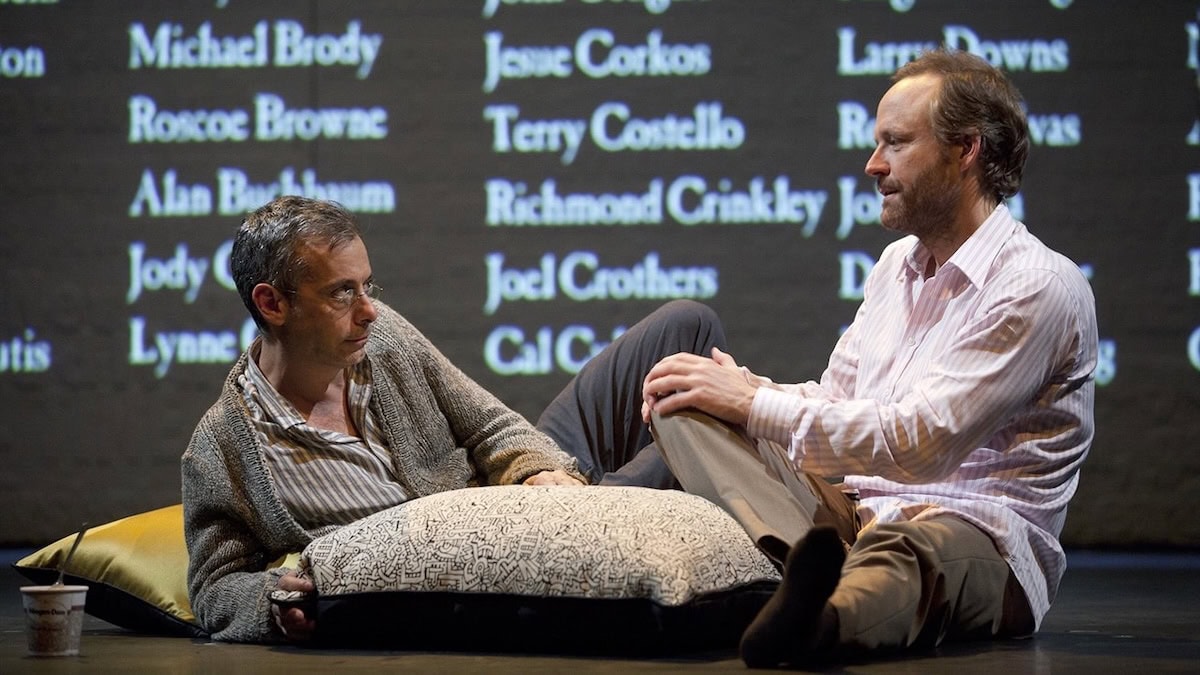
The Truth Behind… The Normal Heart
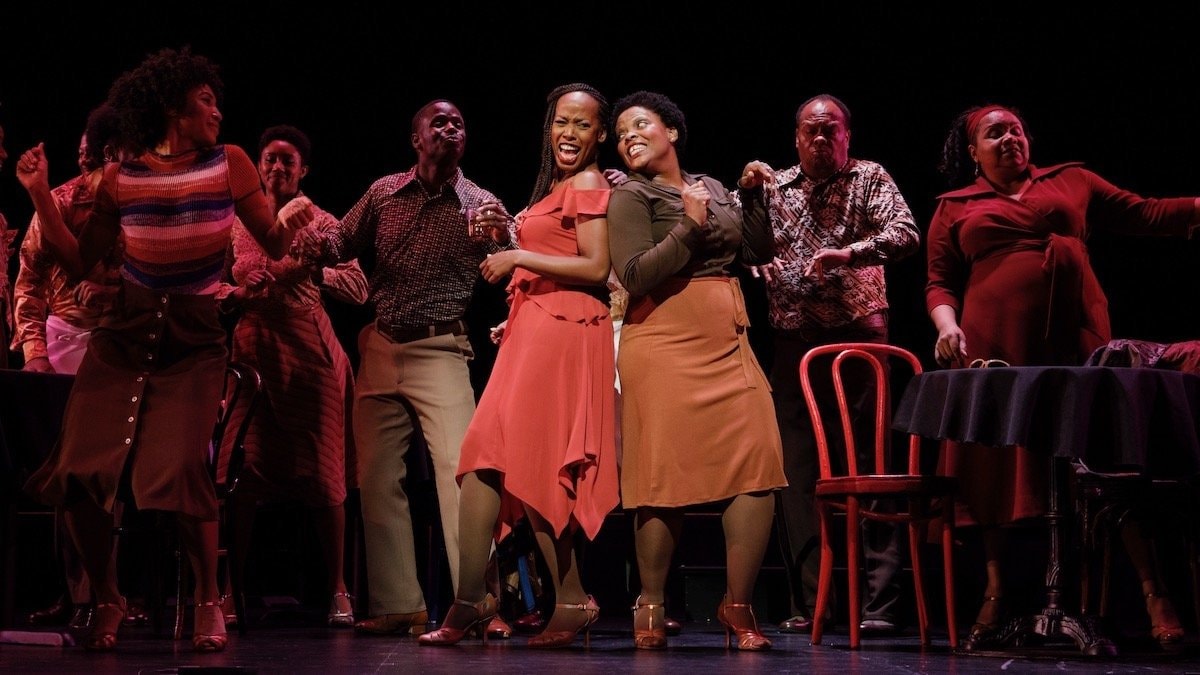
Musical Revues
